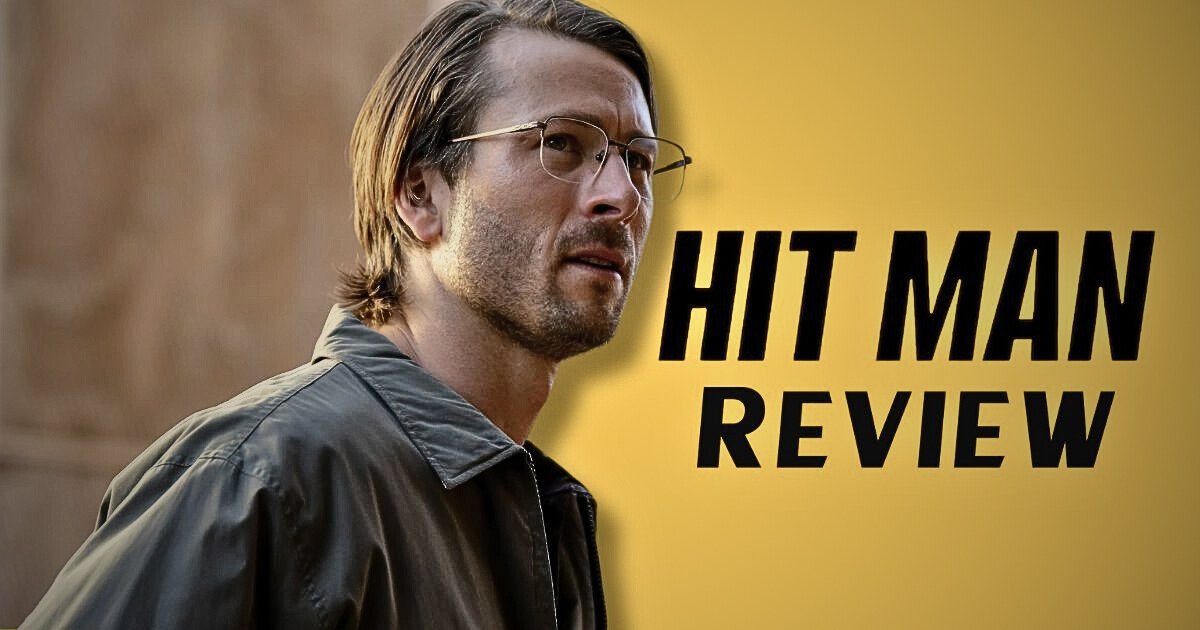When I saw Glen Powell’s mom holding up that sign at the premiere of Hit Man last month—saying “Stop Trying To Make Glen Powell Happen”—it struck a chord with me.
Honestly, I’d had similar thoughts before. It felt like Glen Powell was everywhere, from rumors of a Twister remake to the rom-com Anyone But You. But for me, his performances often felt overshadowed, especially by his co-stars. I even likened his style to Ryan Reynolds—kind of bland, kind of cocky. (And just to be clear, Ryan Reynolds isn’t exactly my cup of tea.)
But seeing his mom there, with that sign, it humanized him. I read somewhere that he has this self-deprecating humor, and he’s really close to his mom. It made me rethink things.
Then, I watched Hit Man on Netflix. Glen Powell co-wrote it with Richard Linklater, which was pretty impressive. And his performance? It blew me away. It was like discovering a whole new side to him, one that I’d overlooked before.
You know, in movies like this, the lead role is usually all about making the star actor shine. But, you still gotta leave a mark, you know? And Glen Powell, well, he definitely does that.
What’s crazy is that this movie is actually based on a true story, though they’ve changed up some details. When we first meet Powell’s character, Gary Johnson, he’s this kinda average guy—messy hair, glasses, and cargo shorts. By day, he’s teaching philosophy and psychology at college, and by night, he’s doing IT stuff for the police.
In class, they’re talking about Nietzsche and living passionately, and one student can’t help but snark, “You drive a Civic.” Yeah, that’s Gary—a regular dude. He’s got two cats, likes birdwatching, and isn’t exactly a ladies’ man.
And even when he gets roped into helping out with some police stuff, it’s not exactly glamorous. He’s just there to make sure the tech works, you know? But then, out of the blue, his boss says, “You’re up,” pointing to Gary to take over from this rough-around-the-edges cop. And Gary’s like, “Wait, me?” It’s like he can’t believe it—and honestly, neither can we.
Time’s ticking away. The suspect, the one who reached out to the undercover hitman, is sitting tight in a diner. Claudette, the boss, leans in to Gary, mentioning how he’s been through these operations before. And there’s Phil, Gary’s coworker, who’s not exactly gung-ho about the whole thing. “Tried it once,” Phil admits, “nearly got myself killed.” Not exactly the pep talk Gary needed.
But despite the doubts nagging at him—or maybe because he’s secretly craving a bit of excitement—Gary decides to go in. Stepping into the café, he slips into his role like a seasoned actor. It’s not the first time he’s pulled off this act, and he’s surprisingly good at it. With his background in philosophy and psychology, he’s got a knack for reading people. Watching him effortlessly switch from one persona to another is kind of mesmerizing. And hey, they all bond over their love for pie. “There’s no such thing as bad pie,” Gary always says. Hard to argue with that!
Director Richard Linklater guides us through these moments with finesse. From the initial encounter to the awkward small talk, to the moment the suspect realizes they’ve been caught—it’s all there, unfolding in front of us.
The movie hints that hitmen are more like characters in movies than real-life people. It’s a bit surprising, right? But deep down, maybe we all wish it were true—that one phone call could solve all our problems. Linklater and Powell tap into that longing, adding a layer of poignancy to the story.
Gary picks up on Madison Masters’ subtle cues, sensing her desire for a confident and cool hitman. So, he transforms himself into “Ron,” complete with a tough leather jacket, shades, and slicked-back hair. It’s like he’s stepped into a role he never knew he had.
As Ron, Gary does more than just play the part. He goes off-script, persuading Madison to use the money she was going to give her abusive husband to start a new life instead. It’s a risky move, but he can’t help himself. There’s something about Madison that touches him—he genuinely believes she’s a good person.
But Gary’s transformation doesn’t go unnoticed. His colleagues, Phil and Claudette, can’t help but notice the change. Suddenly, Gary, the mild-mannered nerd, is seen as this charismatic, approachable stud. It’s like he’s a whole new person.
As Gary gets deeper into his role as Ron, he finds himself crossing lines he never thought he would. He starts dating Madison, blurring the lines between his undercover persona and reality. It’s a risky move, but he can’t seem to help himself.
Even Gary’s students notice the change. They whisper amongst themselves, wondering when their once ordinary teacher got so… hot. It’s like Gary has tapped into a side of himself he never knew existed—a realization that hits him hard.
In the end, Hit Man isn’t just a movie—it’s a journey of self-discovery for Gary, and for the narrator, it’s the movie that turned them into a fan of Glen Powell.





2 thoughts on “Hit Man movie review”